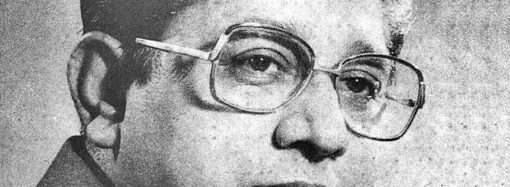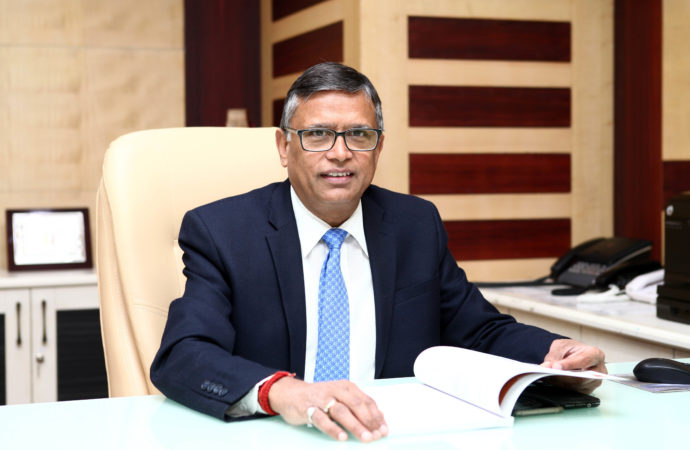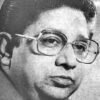Dr. Sandeep Sancheti, Vice-chancellor, SRM Institute of Science and Technology shares his opinion with Anupriya Dobhal about employability of engineers and ways to enhance research opportunities.
Q. How does SRM Institute of Science and Technology prepare engineers and scientists of the future?
Learning today is highly integrated with a strong blend of practical applications and theoretical concepts implemented everywhere. At SRM, our faculty always ensure that hands-on skills are delivered through a wide variety of mechanisms. This provides students opportunities to learn fundamental theories and their applications effectively which results in successful and effective learning. By integrating such practices of demo models; hardware design and fabrication; and software or CAD simulations into teaching or learning, students gradually understand that success in engineering requires understanding different aspects of theoretical principles vastly and also tend to use more multi-disciplinary approaches. In the process, they enjoy learning the science and art of engineering and gain a great deal of self-confidence. This approach is essential for all engineering disciplines.
Along with efforts mentioned above, we encourage participation in various internships offered by industries for successfully carrying out of research projects where learning happens naturally. To make our students understand the societal requirements, we encourage internships in the public domains like villages, NGOs and startups. We also support a lot of competitions which may be based on ideas, performance, designs, or testing techniques for which we encourage open participation. We have also come up with innovation and fabrication labs that run 24 x 7. These are equipped with state-of-the-art facilities and are guided by expert faculty.
Q. According to India Skills Report 2019, employability has increased up to 47 per cent but engineers across various disciplines still remain unemployable. What is your opinion about this?
I haven’t gone through that report right now, therefore I will not comment on that. However, I will express my views on employability of engineers. An engineering degree typically is of four years of study, where we can dedicate significant time for enhancing employability skills among students. Employability can also be improved by inculcating multi-tasking skills, dual specializations and also by broad based degrees. Graduates from other disciplines such as science, commerce, and humanities also suffer because of lack of job opportunities. The main point here is that the Indian industries, particularly in organized sectors, right now do not possess the capacity to absorb so many graduates.
Further, I would like to mention that contrary to the popular belief engineers have better potential for job as compared to any other graduate. A typical job requires three major attributes namely communication skills, analytical skills, and IT skills along with a core capability. Like any other discipline, a student is formally taught about communication skills in engineering. However, when it comes to the other two skills, engineering students certainly have an edge as these are inherent part of their studies. It is because of these reasons, engineers do well in most of competitive exams for any position and move up in the success ladder rapidly. Hence, when anyone talks about employability, he or she should also speak about the employability of other graduates and assess it in relative terms.
In my opinion, industry associations can help us by bringing out reports that talk about employability of other graduates also or about the type of specializations of engineering graduates that will be required in the next 10 to 20 years for employment in India. Most of the engineering bodies too have not come up with a future or strategic plan that talks about employability of engineers in a comprehensive manner. Another aspect in this context is that unlike for other important professions, engineers do not have a bill or a body to regulate the profession effectively. Currently, we are working with a short-term vision and primarily in a reactive mode rather than working in a proactive mode.
Q. Has SRM implemented the newly introduced syllabus of engineering by AICTE?
We are very much ahead in executing such steps through numerous policies and framework at our institution. We have around 120 international advisory board members, 160 industry advisors, a planning and monitoring board, and our own board of governors to bring the finest inputs while deciding and executing important decisions. For instance, it was recommended that the faculty of every institution should visit industries. We have been doing this since six to seven years now. We invest in faculty and pay extra allowance to faculty members who wish to spend 10 to 15 days in any industry during summer time. By doing this, they can teach students according to the norms and latest trends of the industries and bring the practical life problems for our research.
Six-months of industrial projects for B. Tech students has also been suggested recently but as mentioned earlier, we have been practicing this for quite some time now. We are now thinking of introducing one year of industrial training for extremely meritorious students. Further, we are thinking of asking students to take up entrepreneurship as a project in final year which hasn’t been suggested by various statutory bodies so far. Institutes like ours should give adequate time and opportunities to students while they are with us in order to promote entrepreneurship. Otherwise just teaching them a course in entrepreneurship will not make them entrepreneurs. Hence, SRM and all other good technical institutions lead by unique examples in developing and delivering innovative practices which are later adopted by bodies like AICTE.
Q. Do you think that training by industry trained faculty is important for technological institutes in order to make students more employable?
Certainly, I have given an example of it earlier also. We call it FIIP or Faculty Industry Immersion Programme. It is important because numerous good students who are employed by the industry are taught in these programmes by our faculty. Therefore, industrial exposure is a must and act as a catalyst for effective teaching or learning. Now, AICTE has also recognized and recommended that ten per cent of engineering curriculum should be taught by experts from industry. Similarly, faculty from industry can also be employed who can generally deliver their expertise in a flexible mode and there would be no course completion requirement from their end. Industry experts can talk about topics of their choice relevant to a subject according to their convenience. I am happy that regulatory bodies are encouraging institutions to recruit industry faculty. Joint faculty recruitment for industry and academia is also an alternative, meaning that faculty members can spend half of their time in the classrooms and rest in industries.
Q. Most of the science and technology institutes in our country lag behind in research. How does your institute encourage research?
Every institute should encourage research by creating an environment for it. We have created a special set up called Research Institute with around 150 faculty members. They all possess post-doctoral degrees and they are given just one course to teach, so that they can focus on research adequately and yet do not lag in connecting with students. Most of the conventional institutions would not have such a set up. If a faculty is pursuing Ph.D, the institute gives them a day-off per week from their normal schedule so that they can focus completely on research.
We provide seed grants of up to 10 lakhs freely to new incumbents. The objective of providing seed grants to them is that they should initiate their research without any hindrance and it is expected that after one or two years they should be able to write project proposals for funding from external bodies and industries. We also provide professional development allowance and faculty in turn use it according to their research needs. They can buy books, journals, raw materials, or can attend conferences with this allowance. Conducting research for several nationally important projects such as Hydrogen Railway with Integrated Coach Factory and Moon-Mission which are worth crores of investments are a priority for us. We dedicate 6 to 7 per cent of our budget in research every year and currently projects worth more than 120 crores with external support are ongoing at SRM IST.


















Leave a Comment
Your email address will not be published. Required fields are marked with *